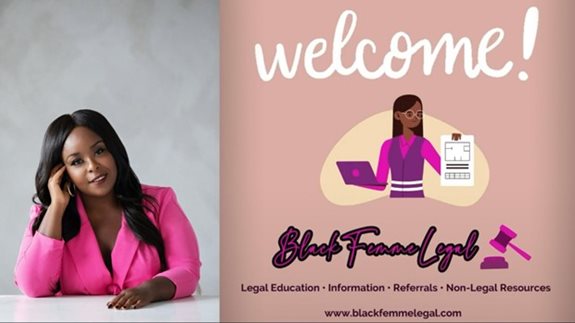(Femme is a non-binary, gender expansive term and is queer)

It’s the last day of the month of February, the month when we acknowledge and celebrate the existence of Black people of African descent (‘the Black community”) and their achievements and contributions to Canadian society.
On March 4, 2008, Parliament unanimously adopted the Motion to Recognize Contributions of Black Canadians and February as Black History Month. The motion was introduced by Senator Donald Oliver, the first Black person appointed to the Senate.
However, a celebration of the members of the Black community, by necessity, ought not to be confined to 28 days, when the Black community will continue to participate in and contribute to Canadian societies of the future. Hence, the birth of the Black Futures movement, a movement which insists that we reimagine the idea of Black History Month and change the emphasis from the history of Black people to their futures. This shift in focus is significant, because it requires us to strive harder to tear down the oppressive systems that still operate to inhibit Black futures in Canadian society. Those very systems that have made it necessary to allocate time to celebrate the people that they oppress.
It is widely accepted that members of the Black community continue to experience a veritable lack of access to justice. Indeed, in 2018, during a speech to announce Canada’s adoption of the United Nations General Asscembly’s International Decade for People of African Descent), the Prime Minister, acknowledged that the relationship between Black people and the Canadian justice system remains fraught with challenges.
The challenges that the Black community faces in relation to access to justice include participation in the legal infrastructure, as a lawyer or member of the judiciary. You may recall that, in December 2016, the Law Society of Ontario’s “Challenges Faced by Racialized Licensees Working Group”, after four years of consultation and research, confirmed in its final report, that racialized individuals faced a variety of barriers to both entry and advancement within the legal profession. Significantly, the report also noted that race-based barriers are often complicated by additional intersecting experiences of discrimination based on gender identity, gender expression, and sexual orientation, among other things.
It is against this backdrop and the tenets of the Black futures movement, that I decided to write a profile to honour and celebrate a Black queer lawyer, who is excelling despite the persistence of race and queer based barriers within the legal profession. An individual who dares to rebel against the regnant legal practice traditions to reimagine a legal system, practice and profession that is accessible to the Black queer community.




